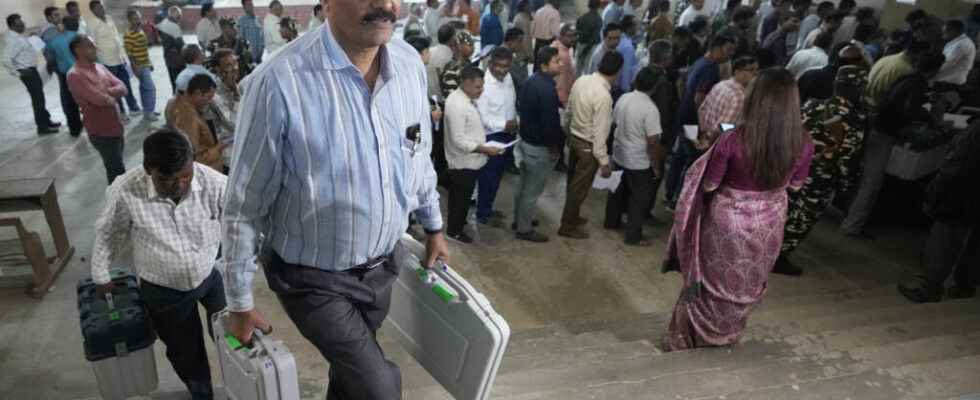We continue to vote, since December 1, for the legislative elections in Gujarat, stronghold of the Hindu nationalist party BJP. Twenty years ago, anti-Muslim riots killed more than 1,000 people and displaced 100,000. A tragedy that continues to influence the political dynamics of the campaign.
With our special correspondent in Ahmedabad, Como Bastin
In the Muslim slum of Bombay Hotel, the memory of the 2002 clashes guides the votes. “Three people in my family were killed in 2002 by Hindu extremists. That’s why I had to flee. In this ghetto, everyone votes for the Congress party. Their deputies are the only ones to care about our fate, to fight to bring water and electricity,” says Munaf Sheik, a 60-year-old resident.
For its part, the BJP claims to have brought civil peace to Gujarat. Interior Minister Amit Shah recently shocked by saying the killings had served as a lesson to troublemakers.
Elected a year before the riots, Narendra Modi knew how to calm tensions, judge Yogesh Bhatt, a 66-year-old Hindu: “ The divisions between Hindus and Muslims were created artificially. For us Muslims, Christians are also “Hindus”, they are part of India. In this country, everyone is equal “.
►Read again: Elections in Gujarat: the BJP tries to appropriate the legacy of Gandhi
In this campaign, the new opposition party AAP, which hunts on the lands of the BJP, avoided any reference to the drama, including during the controversial release of Hindu rapists and murderers, imprisoned at the time. Proof that twenty years later, this tragedy shapes the positions of the parties that clash in Gujarat.
►Major Report: India: those left out of the “Gujarat model”
